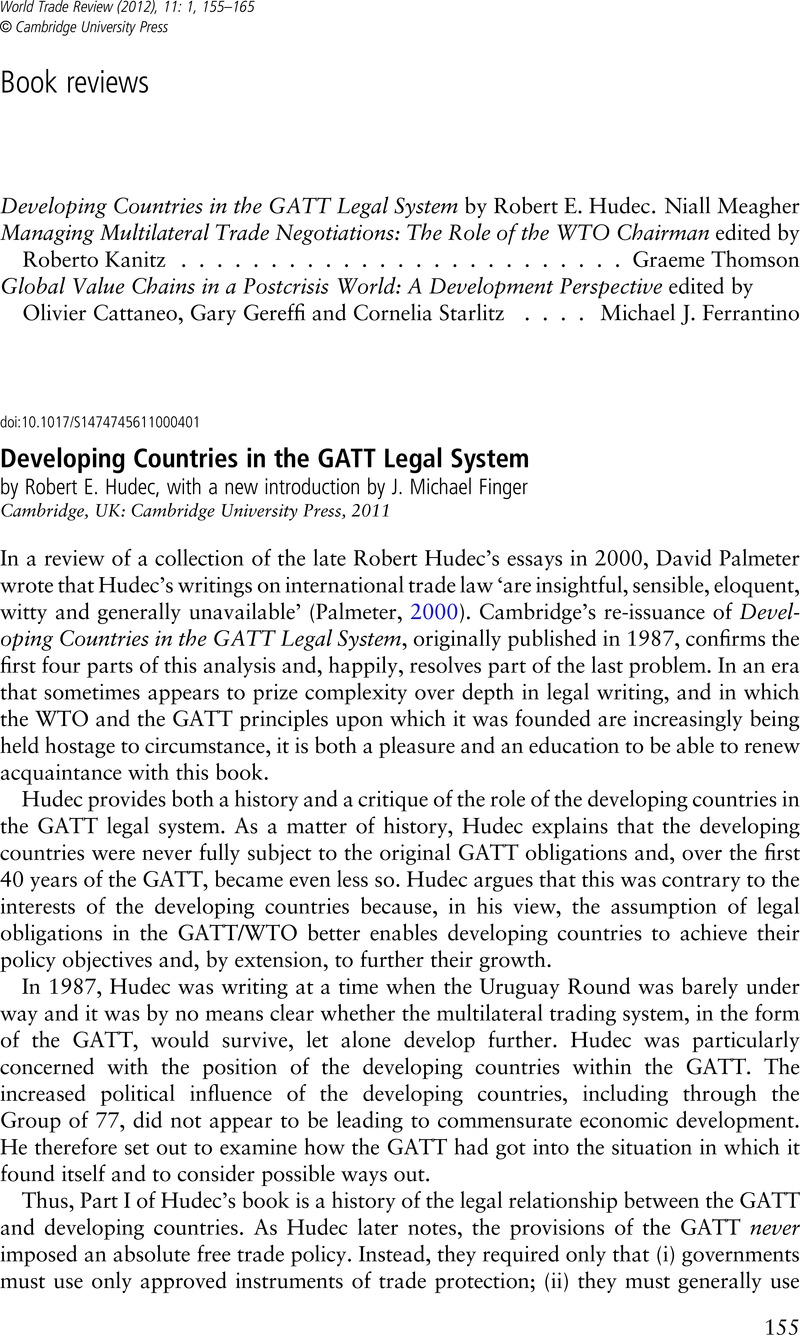Hudec, R. E. (
2000), ‘Broadening the Scope of Remedies in WTO Dispute Settlement’,
Weiss, Friedl (ed.),
Improving WTO Dispute Settlement Procedures: Issues and Lessons From the Practice of Other International Courts and Tribunals, Cameron May.
Google Scholar 